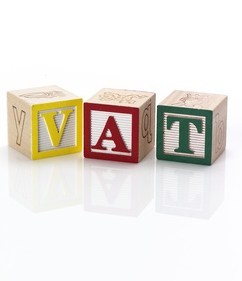Archive for June 13th, 2012

Settlement reached in Grand Island Funds collapse
(CNS Business): In the latest report to the Grand Court on the collapsed Grand Island Funds, the joint official liquidators (JOLs) said that final distributions to shareholders should be around 60 cents on the dollar. The funds collapsed in 2008 when it became apparent that US $19 million had been misappropriated, for which the fund manager, the only person who has been charged in connection to the fraud, was later convicted and sent to jail for eight years. The JOLs had commenced legal action against the Funds' broker, ScotiaMcLeod; its administrator, Close Brothers (Cayman) Limited; the auditor, KPMG; and director John Sutlic to seek the recovery of money lost as a result of what the JOLs alleged were failures to undertake their duties. Read more on CNS Business
Young footballer’s tragic death remains a mystery
(CNS): A promising young footballer died suddenly during practice on Tuesday evening in Grand Cayman. Gerome Graham, who was only 20 years old and had no known health condition, collapsed at the Haig Bodden football field in Bodden Town last night, where the local club trains, at around 7:40pm. Although his team mates attempted to revive Graham, the young man was pronounced dead on arrival at the Cayman Islands Hospital, George Town. Police said there appeared to be no suspicious circumstances surrounding the death. His club colleagues, friends and relatives were said to be devastated by the young man's sudden and unexpected death.
In Cayman 27's news reports on Tuesday evening the CIFA General Secretary Bruce Blake spoke about the need to have training sessions for physios and basic CPR to get people certified at the clubs. He said CIFA needs to help the clubs address issues like fitness checks of all players.
See Cayman27 video here

TCI in battle over introduction of VAT
 (CNS): Officials from the Turks and Caicos Islands government are defending the proposed introduction of VAT in the face of local opposition to the sales tax. The interim British administration currently running the island, after the country’s constitution was suspended amongst a major corruption scandal, says it needs the purchase tax to help it plug the hole created by the previous government’s alleged corruption and mismanagement of public money. Chief Financial Officer Hugh McGarel-Groves said Introducing VAT would strengthen the country’s fragile recovery with a simpler, equitable and stable source of government revenue.
(CNS): Officials from the Turks and Caicos Islands government are defending the proposed introduction of VAT in the face of local opposition to the sales tax. The interim British administration currently running the island, after the country’s constitution was suspended amongst a major corruption scandal, says it needs the purchase tax to help it plug the hole created by the previous government’s alleged corruption and mismanagement of public money. Chief Financial Officer Hugh McGarel-Groves said Introducing VAT would strengthen the country’s fragile recovery with a simpler, equitable and stable source of government revenue.
Hitting out against those opposing the tax McGarel-Groves asked this week what alternatives there were to the benefits of VAT and suggested the opposition to it was from those who are currently paying no tax at all.
“Given the difficulties endured by the TCI economy since the collapse of the last government, it is in the best interests of the entire community to ensure that government finances are secure and that it can continue to develop expenditure plans in line with local peoples’ priorities,” the chief financial officer said.
He added that VAT was a proven system across the Caribbean and would be straightforward to administer as a single form of taxation replacing the five different sets that are currently levied in the UK territory.
During Cayman’s own budget difficulties in the wake of the 2009 election, the then Labour government in the UK had suggested that the government here consider the implementation of a tax and the premier had originally indicated his preference for VAT over income or property tax but in the end opted for increasing existing fees.
Speaking in April 2010 during efforts to borrow some $300 million to help balance the budget, plug a government deficit and pay for capital projects, McKeeva Bush was forced to seek permission from the UK, which was pointing towards the need for Cayman to widen the tax base.
Bush said if he had to choose he would introduce a “value added fee” and had indicated that Cayman would eventually be forced to implement some form of taxation. Bush said VAT was fairer because rich people spend more so they will put in more.
The TCI government said it is suggesting VAT not to increase revenue but to simplify the local taxation system. It said the VAT is not an additional tax but will replace several other complicated taxes, such as the Hotel & Restaurant Accommodation Tax, Vehicle Hire Stamp Duty, Domestic Financial Service Tax, Telecommunications Tax and Insurance Premium Tax. The introduction of VAT will also partly replace import duty and start to address what the government said were excessive and unfair benefits some businesses receive via import duty concessions.
“VAT is a broad based tax and will spread the burden across a larger portion of the economy, including the service sectors, which currently pay no sales-related tax,” the government has claimed.
The government in TCI denies that VAT will make the islands less competitive as the proposed rate of VAT will be between 8.5% and 12%, no higher than the majority of regional countries that have rates between 15% and 17.5%. Some four studies have been conducted over the last seven years comparing TCI’s existing tax system with alternatives and they conclude that VAT is the most appropriate type of tax for the country.